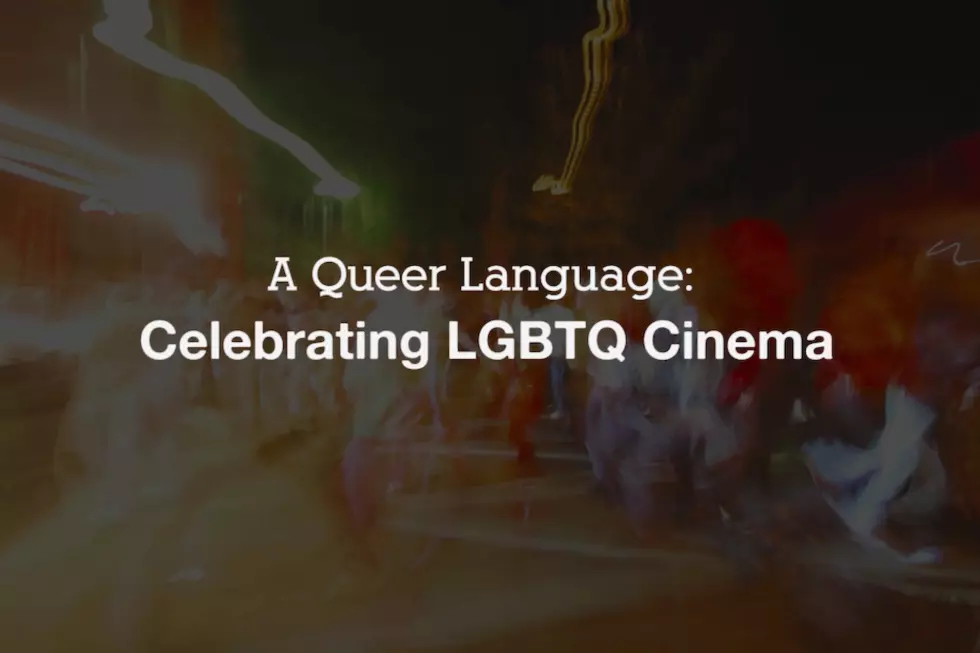Why Hollywood Needs Trans Actors: An Open Letter
This video is one part of ScreenCrush’s new franchise Our Hollywood, a month-long series about the past, present and future of transgender visibility in film and television. Stay tuned throughout June’s LGBTQ Pride Month for in-depth profiles with photos shot by Amos Mac, essays and exclusive videos.
It doesn’t take a media critic to know that film and television have long mistreated and misunderstood the transgender community. Whether painting trans people as something to be reviled and shamed (think Ace Ventura: Pet Detective), as villainous monsters (remember Buffalo Bill?), or using their identities as plot twists (we’re talking to you The Crying Game), Hollywood has continued to perpetuate dangerous and offensive stereotypes. And when a film or series does finally tell an authentic trans narrative, those characters have historically been played by cisgender1 actors – from Chris Sarandon in Dog Day Afternoon (who got the part over trans actor Elizabeth Coffey Williams, who was told she didn’t look “trans enough”) to Eddie Redmayne in The Danish Girl. As Hollywood history shows, most of the time those actors end up earning Oscar nominations and wins for their performances of trans people.
You’ve seen the backlash when a cis actor is cast in a trans part, most recently with Matt Bomer in Mark Ruffalo’s upcoming drama Anything. But what exactly is the problem with cis people playing trans parts? And how do we fix Hollywood’s decades-long demonizing, bullying, and erasure of trans people? Instead of explaining it ourselves, we got nine trans actors to tell you in their own words.
In the above video, presented by ScreenCrush and GLAAD, and written by writer/actor Jen Richards (Her Story, Nashville), Alexandra Billings (Transparent), Trace Lysette (Transparent, Blunt Talk), Rain Valdez (Lopez), Elliot Fletcher (Shameless, The Fosters), Ian Harvie (Mistresses, Transparent), D’Lo (Looking, Sense8), Alexandra Grey (Transparent, Drunk History), and Jazzmun (When We Rise), share their open letter to Hollywood. They explain the significance of casting trans people in trans roles, how Hollywood can do better by the trans community, and why they’re more than capable of playing all types of roles. Sure, these actors want the opportunity to tell stories reflective of their community on screen, but they also want to play other characters, too, like the lead in a rom-com, a Jedi, or even a superhero.
The future of trans representation in film and television lies in the hands of studio executives, writers, showrunners, filmmakers and casting directors. If they want to depict trans people with respect, authenticity and dignity, that change begins first with listening, then taking action. Trans actors – as well as writers, producers and directors – are here, and they’re ready.
Check out a gallery of behind-the-scenes photos from the video shoot below. For more about what it’s like to work in film and TV as a trans actor today, check out the rest of ScreenCrush’s new franchise Our Hollywood. Read interviews with Ian Harvie, Alexandra Billings, Trace Lysette, Alexandra Grey, and D’Lo, and stay tuned for more actor profiles, essays, and exclusive videos all month long.
1Cis or cisgender: A person whose gender identity matches the biological sex they were assigned at birth.



![Straight Cop Has Personal Reasons to Support LGBT Community [PHOTO]](http://townsquare.media/site/87/files/2017/06/Cop-supports-LGBT.png?w=980&q=75)

![Russian Pranksters Call Elton John as Vladimir Putin, He Falls For It [VIDEO]](http://townsquare.media/site/87/files/2015/09/elton.png?w=980&q=75)